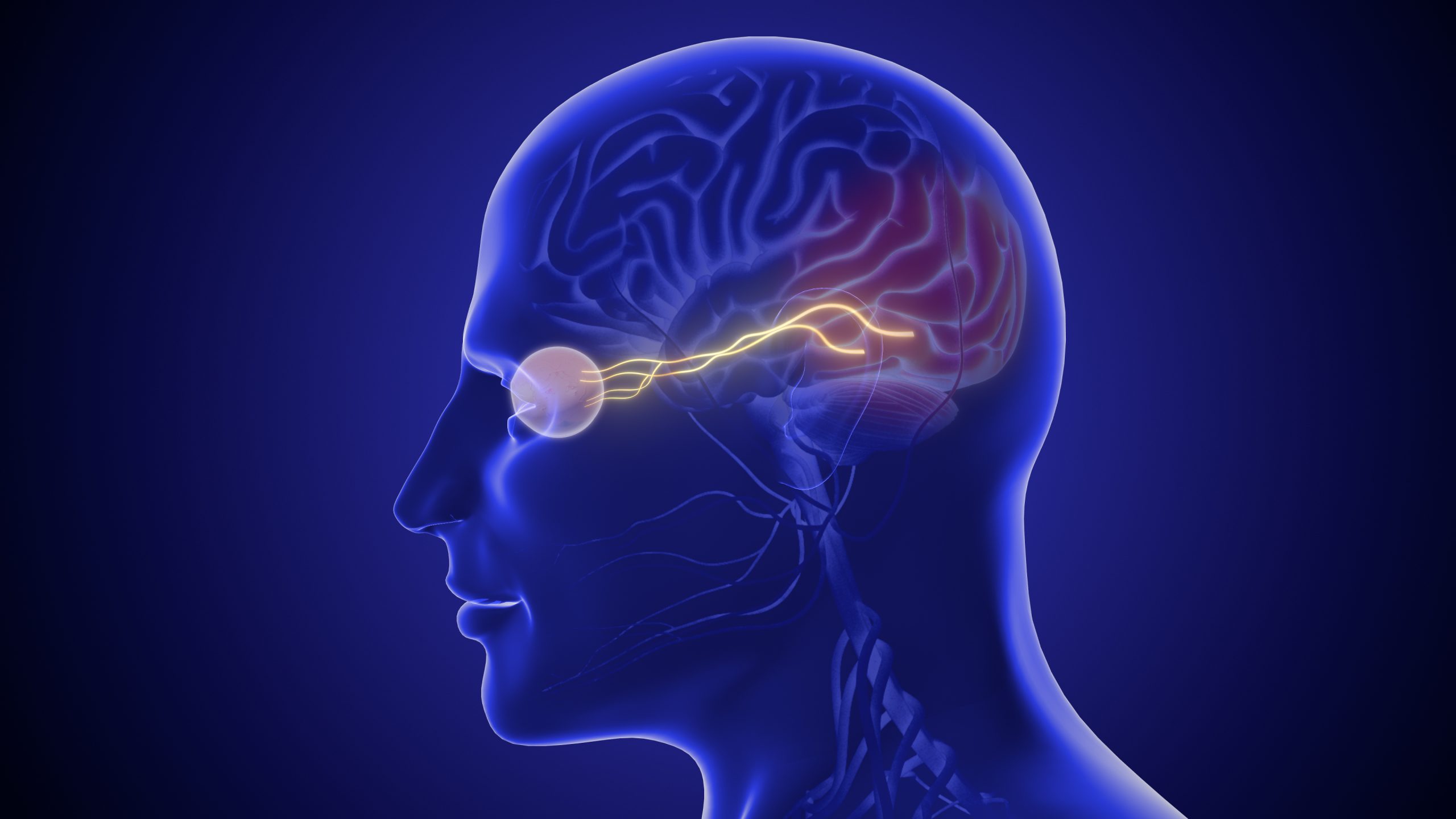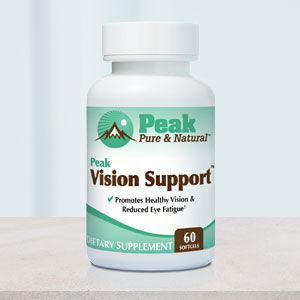Get Easy Health Digest™ in your inbox and don’t miss a thing when you subscribe today. Plus, get the free bonus report, Mother Nature’s Tips, Tricks and Remedies for Cholesterol, Blood Pressure & Blood Sugar as my way of saying welcome to the community!
The mind-eye connection to dementia

I just got back from the eye doctor, and he tells me my prescription has changed yet again.
I figure it’s to be expected. I’m getting older, and some things just don’t work quite as well as they used to, including my eyes. It’s why I make sure to eat plenty of leafy greens and carrots and why I’ve been trying to take more breaks from my screens.
But lately, I’ve had an extra layer of anxiety when it comes to my poor eyesight. You see, it turns out that a growing pile of studies is linking vision issues with a feared disorder that strikes many older folks….
Bad vision could lead to dementia
A team of researchers at the University of Michigan recently examined a sample of nearly 3,000 adults over the age of 71, with an average age of 77.
Using a digital tablet, the researchers tested the participants’ up-close and distance vision, as well as their ability to see letters that didn’t contrast strongly with their background.
Memory and thinking ability was tested and the researchers gathered health information, including any existing diagnosis of Alzheimer’s disease or other forms of dementia in participants.
Just over 12 percent of the entire group of participants had dementia. However, when breaking out those who had impaired vision for seeing up close, that figure rose to 22 percent.
One-third of those with moderate or severe distance vision impairment, including those who were blind, had signs of dementia — as did 26 percent of those who had trouble seeing letters that didn’t contrast strongly against the background they were viewed on. Even among those with only mild distance vision problems, 19 percent had dementia.
When adjusting for other differences in health status and personal characteristics, people with moderate to severe distance vision issues were 72 percent more likely than those with no vision problems to have dementia.
When looking at those with more than one kind of vision impairment, the researchers found they were 35 percent more likely to have dementia than those with normal vision.
These results included those who weren’t able to see well even when they were wearing their usual eyeglasses or contact lenses.
This isn’t the first study to link sight and dementia. A previous study found those who underwent cataract surgery were almost 30 percent less likely to develop dementia in general.
The researchers observed that prioritizing vision health could be key to optimizing both sight and overall health and well-being.
Protecting your vision
If you already have vision problems, don’t despair. There are several steps you can take to slow progression:
- Make sure your corrective lenses prescription is up to date. You’ll want to make it as easy for you to see as possible to avoid eyestrain.
- Take breaks from devices like computers, tablets and smartphones. Computer vision syndrome is a direct result of spending too much time with digital screens. Every 20 to 30 minutes, look up from your device and focus on something roughly 20 feet away for 20 seconds.
- Use good lighting. Make sure you have enough light for whatever task you’re working on.
- Protect your eyes from the sun. You’ll want to wear sunglasses that specifically block ultraviolet (UV) radiation.
- Manage health conditions that can affect vision. These include high blood pressure and diabetes.
- Eat right and exercise. A healthy diet and regular exercise will help keep you healthy and stave off any ailments that might affect your vision.
- Get plenty of antioxidants. Specifically, the antioxidants lutein and zeaxanthin, which are found in green leafy vegetables such as kale, spinach, broccoli and peas, can help support your vision health. Higher levels of these nutrients have also been linked to lower dementia risk.
- Don’t smoke. In addition to its many other health impacts, smoking can negatively affect your vision.
Even if your vision is normal, you should still consider following the above steps to keep it from deteriorating with age. After all, maintaining sharp vision may help keep your brain sharp as well.
Editor’s note: Are you feeling unusually tired? You may think this is normal aging, but the problem could be your master hormone. When it’s not working, your risk of age-related diseases skyrockets. To reset what many call “the trigger for all disease” and live better, longer, click here to discover The Insulin Factor: How to Repair Your Body’s Master Controller and Conquer Chronic Disease!
Sources:
Minds & eyes: Study shows dementia more common in older adults with vision issues — EurekAlert!
Objectively Measured Visual Impairment and Dementia Prevalence in Older Adults in the US — JAMA Ophthalmology
Nearsightedness — Mayo Clinic
Farsightedness — Mayo Clinic














